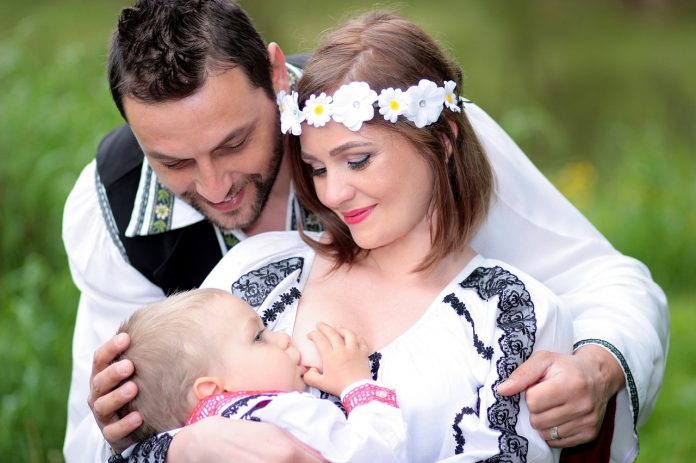
I am a 23-year-old female that is breastfeeding a three-week-old infant. I was wondering how many calories I should be taking to make sure my breast milk has enough calories and nutrition for my baby?
I am wanting to get back to my pre-pregnancy weight. I was 147 pounds when I got pregnant and I am now 212 pounds. I gained quite a bit of weight throughout my pregnancy and I want to get back into shape without depriving my baby of nutritious fatty breast milk.
Thank you!
Your breastfeeding calorie needs depends on your weight and height. If you would like to try my Healthy Body Calculator® and select breastfeeding, it will calculate your calorie needs. What you will see is that you need more calories to breastfeed than when you were pregnant and definitely more than when you were not pregnant. So that is good news. Next, re-do HBC and select to lose 1 or 2 pounds per week to calculate a weight loss calorie goal. You can eat a good amount of food, nurse, and lose weight.
Most babies gradually increase their intake to about 1 quart of breast milk a day during the first 6 months. That requires mostly water (87%) with some protein (about 1/4 in cow’s milk), fat (like whole milk), calcium, phosphorus and a highly absorbable form of iron as well as other nutrients. The biggest impact on the quantity of milk you produce is how much water you drink. Also if you don’t eat a variety of foods from all food groups, your body will take protein, vitamins, and minerals from your body stores in order to make breast milk. This can weaken your bone structure which may have an effect later in life.
That said, yes you can lose weight slowly while breastfeeding. In fact, the average breastfeeding woman burns about 2300 calories a day whereas a non-breastfeeding woman might only burn 1500 calories a day to keep her body running. This is without any exercise.
Studies of women who were starving produced the same quality of milk except their milk was lower in riboflavin, vitamin B2. These women also produced a smaller quantity of milk.
However, you don’t want to starve yourself as your body needs fuel to keep up with the needs of a new-born infant who is not yet sleeping thru the night until they reach about 12 pounds. Eat enough food every 4 to 6 hours so that you are not overly hungry because then you may eat whatever is handy and convenient rather than healthy.
Enjoy breastfeeding as I found it a wonderful bonding time with my babies.



